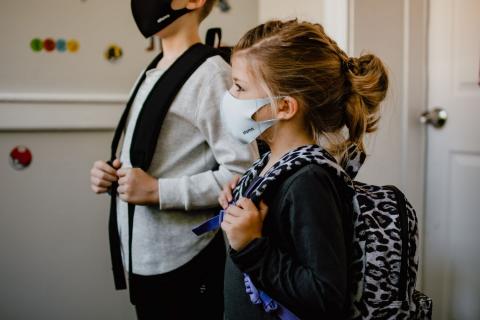Helping Youth Manage Back to School Anxiety
With the COVID-19 pandemic still a concern, many families may feel anxious about returning to school. Although some families are excited to be back in person, there may also be some lingering health concerns that can create feelings of anxiety about the return to the classroom. Here are some tips to help deal with your child’s anxiety.
-
Talk to your child. Allow them to express their feelings about going back to school. Listen to your child and validate their thoughts and emotions. Be encouraging but don’t try to “solve” their issues. Keeping an open dialogue with your child can also encourage them to continue to come to you in the future for other concerns.
-
If some of your child’s anxiety is related to feeling safe from COVID, Make sure you have information about COVID from a trusted source, like the Centers for Disease Control and Prevention. Also know what the policies and guidelines are for your local schools and other common locations your child will be. Share these guidelines with your child to help emphasize the safety measures that are in place and to reassure them about what is being done to help them stay healthy.

-
Model anxiety management. Children learn by watching us and children will notice if you are also anxious. Practice managing your emotions and showing children healthy ways to handle anxiety.
-
Keep up with routines or create new ones. Routines help children feel safe and secure. Keep up with family routines as much as possible or create new routines together. Predictability can help children and adults alike feel a sense of calm and reassurance.
-
Watch for signs of mental health concerns. Check out this blog for more information about the signs and symptoms of anxiety and depression in youth. Sometimes these feelings can lead to thoughts of suicide. Read more about suicide prevention measures in this blog post. This blog post also shares how youth might display suicidal behaviors in different settings (school, home, etc). If you need more help, view this page for a list of resources in New Hampshire and nationally.
Check Out Our New Health & Well-Being Page
Our specialists help create healthy people and healthy places in New Hampshire.
Featured LINK
Mental Health Resources for New Hampshire - a printable county-specific guide to help New Hampshire residents find local, state, and national mental health resources.


